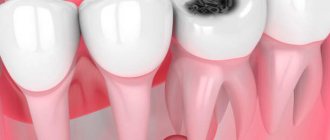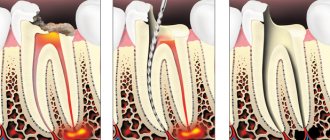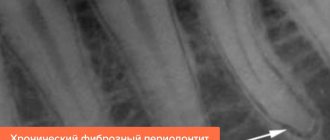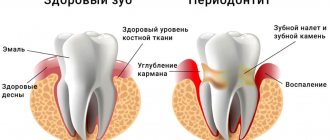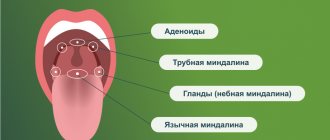Anonymously
Around the clock
Attention! The material contains information about substances, the use of which can cause serious harm to your health!
To most people, smoking cigarettes seems to be nothing more than a bad habit. Meanwhile, nicotine is officially classified as a seriously addictive alkaloid, on a par with cocaine, caffeine and quinine. All of these substances have a significant effect on the functioning of the nervous system.
Today, tobacco addiction is considered one of the most difficult to treat, since nicotine forms a very serious psychological attachment, affecting our unconscious behavior and even the area of reflexes.
- Nicotine overdose: what is it?
- Causes of nicotine poisoning
- Symptoms of cigarette overdose
- Stomach hurts after smoking
- Gag reflex when smoking
- Chest pain after smoking
- Weakness after cigarettes
- Fainting from smoking
- Nausea after cigarettes: reasons
- Sick of menthol cigarettes
- Sick of electronic cigarettes
- Overdose from vaping
- Nicotine hit
- Signs of acute nicotine poisoning
- Consequences of nicotine overdose
- Lethal dose of nicotine for humans
- Allergy to nicotine
- First aid for nicotine poisoning
- Treatment of nicotine poisoning in
Base
- Narcologist on call 24/7, within 40 minutes
- Consultation with a narcologist
- Dropper 500 ml
- Purpose of therapy
- Tablet course for three days
- Monitoring the patient's condition after the procedure
4,700 RUB
Call a doctor
Standard
- Narcologist on call 24/7, within 40 minutes
- Medical examination
- Consultation with a narcologist
- Dropper 1000 ml
- Purpose of therapy
- Tablet course for three days
- Monitoring the patient's condition after the procedure
5900 RUB
Call a doctor
Intensive
- Narcologist on call 24/7, within 40 minutes
- Medical examination
- Consultation with a narcologist
- Dropper 1500 ml
- Purpose of therapy
- Tablet course for three days
- Monitoring the patient's condition after the procedure
8900 RUB
Call a doctor
Standard
- 6-bed ward
3,000 RUB
Comfort
- 2-bed ward
RUB 5,500
VIP
- 1-bed ward
8,000 RUB
We will select an individual treatment plan
Free consultation 8-800-200-27-23
The pleasant sensations caused by the first cigarettes smoked pass very quickly. To get them back, a person increases the frequency of smoking, which can lead to an overdose. The number of cigarettes smoked also increases during times of stress, when performing hard or responsible work, or in a state of psychological depression.
Nicotine overdose: what is it?
When smoking tobacco, the dangerous alkaloid enters the brain in just 7-8 seconds, since the blood-brain barrier cannot contain it. The incoming nicotine provokes increased production of dopamine, so the person experiences some pleasure.
When large dosages of this substance are consumed, it begins to block the activity of the autonomic ganglia, which leads to general intoxication of the body and the appearance of symptoms similar to general poisoning. With frequent abuse of nicotine, this substance penetrates into all cells and organs, even entering bone and muscle tissue.
Causes of nicotine poisoning
Nicotine intoxication can be acute or chronic. The first is due to the intake of a large amount of tobacco toxins into the body over a short period of time. In the second form, cigarette poisoning occurs regularly when a person smokes too much tobacco daily
The reasons for the appearance of signs of acute intoxication may be:
- Smoking cigarettes on an empty stomach;
- Excess nicotine in the body (consuming a large dose of nicotine in a short period of time);
- Child eating tobacco;
- Combining anti-smoking products (patches, chewing gum, etc.) with nicotine and smoking cigarettes;
- Failure to comply with safety measures when working with insecticides containing nicotine, as well as in the production of tobacco products.
Chronic nicotine poisoning can occur not only in heavy smokers, but also in their family members who have to constantly inhale tobacco smoke. When smoking cigarettes, toxic compounds such as arsenic, hydrocyanic acid, and methanol are released into the air. They complicate poisoning both in smokers themselves and in “passive smokers” who inhale cigarette smoke.
REHABILITATION
General information about the substance
Nicotine looks like an oily liquid, has no color and has a pungent odor. Over time it turns dark yellow. Contained in nightshade plants, in greater quantities in tobacco leaves, in smaller quantities in tomatoes, eggplants, potatoes and green peppers. Along with alcohol, it is the most common psychoactive substance consumed when smoking cigarettes.
When it enters the bloodstream, the drug quickly spreads throughout the body, and when inhaled, it reaches the brain within a maximum of 7 seconds. After 3 hours, its amount in the body is normalized, and after two days it is completely eliminated.
By acting on nerve connections, the substance leads to:
increased adrenaline production,- increased heart rate,
- constriction of blood vessels,
- increased blood pressure,
- psychostimulating effect.
In small doses it leads to suppression of inhibitory processes and increased excitation, and in larger doses it suppresses excitation and leads to behavioral disturbances.
Substance:
- Deteriorates visual acuity, increases pressure inside the eye. Many teenagers who smoke perceive green, red and blue colors worse over time.
- Increases tone and causes vasospasm. Because blood is more difficult to pass through narrowed vessels, the heart has to do more work. To adapt to a greater load, it needs to increase in size due to muscle fibers.
- It impairs physical strength, endurance, coordination and speed of movement, so sports and nicotine are incompatible.
Symptoms of cigarette overdose
Nicotine intoxication occurs when too much of this substance enters the body. The body cannot cope with so many toxins, poisoning occurs. It does not matter in what form the nicotine was consumed - from cigarettes, nicotine patch, gum, nasal spray or inhaler.
In case of chronic nicotine overdose as a result of frequent cigarette smoking, the following symptoms are most often observed:
- anxiety state,
- the appearance of cold sweat,
- acute headaches,
- dizziness,
- muscle twitching,
- tingling under the skin,
- increased heart rate and pulse,
- increased blood pressure,
- fatigue, weakness,
- poor appetite
- pressing pain in the chest area,
- nausea, vomiting, diarrhea,
- stomach pain,
- breathe heavily,
- hearing or vision impairment may occur.
If one or more of the listed symptoms appears, you should immediately contact a narcologist.
Stomach hurts after smoking
Nicotine is a poison, and in large quantities it leads to disruption of intercellular metabolism, which leads to cell starvation. As a result, a person may experience headaches, muscle pain, and stomach pain.
Gag reflex when smoking
The symptoms of nicotine poisoning are similar in many ways to food poisoning. The body strives to remove toxic substances, so it uses all its resources. And its first action is the gag reflex, which clears the stomach of all contents, which allows reducing the concentration of nicotine in the body.
Chest pain after smoking
Due to smoking, the human lungs suffer the most, since the main dose of toxins falls on this organ. Therefore, heavy smokers often experience chest pain.
Weakness after cigarettes
Alkaloids disrupt the functioning of all organs and systems, establishing oxygen and vitamin-mineral metabolism between cells. At the same time, the body throws all its strength into the fight against toxic substances. For these reasons, a person experiences weakness and fatigue.
Fainting from smoking
A large dose of nicotine can lead to muscle spasms in the respiratory system. As a result of an acute lack of oxygen, a person loses consciousness and faints. In some cases, this condition can develop into a coma and even lead to death.
Find out treatment recommendations without leaving home for free
To select a treatment plan, you just need to leave a request, we will contact you to select the time and specialist you need
Submit your application
general characteristics
Olfactory hallucinations vary in content.
Unpleasant imaginary odors are associated primarily with a depressive mood, including anxiety, fear, and suspicion. Patients smell rot, decomposition, toxic substances, and sewage. To ease the sensation, they cover their nose with their hand, insert cotton swabs into the nasal passages, ventilate the room for no objective reason, and use air fresheners. Such hallucinations often serve as the basis for the formation of delusional ideas, for example, about the use of poisons by attackers or the storage of corpses. Olfactory hallucinations of pleasant content are represented by the aromas of flowers, delicious food, and favorite perfumes. Often, patients cannot guess what the source of the smell is; they describe it as unearthly, giving joy, inspiring. Hallucinatory experiences accompany ecstatic, manic states. Imaginary perceptions of odors of a neutral nature are usually not noticed by people and are not grounds for complaints.
Olfactory hallucinations vary in where sufferers identify their source. It can be localized in the environment (on the street, in the next room), in the patient’s body or in imaginary space (in the air, “in the soul” - in mental space). As a rule, the unpleasant smell of poison, rot, or sewage is defined as emanating from external objects; the smell of sweat, urine, decomposition of organs - from one’s own body. The imaginary causes of pleasant odors are magical, mystical sources that are not present in the physical world.
Nausea after cigarettes: reasons
Nausea after smoking is due to the entry of toxins into the body. The following reasons can provoke it:
- spasm of the gastric walls caused by their irritation by substances ingested with saliva;
- irritation due to gastrointestinal ulcer;
- activation of the adrenal glands due to an increase in dopamine in the blood;
- constriction of blood vessels in the brain caused by smoke entering the body.
- contraction of the intestinal muscles, which occurs during poisoning;
- diseases of the oral cavity.
Sick of menthol cigarettes
The danger of menthol cigarettes is that they reduce the harshness of tobacco smoke, which reduces the unpleasant moments of smoking and provokes people to use tobacco products more often. At the same time, the level of nicotine in menthol cigarettes does not differ from conventional analogues. Therefore, nausea from menthol cigarettes is a sign of toxin poisoning.
Sick of electronic cigarettes
Electronic cigarettes are considered a safer replacement for traditional cigarettes. However, their dressing contains a large amount of toxins harmful to humans, which also cause poisoning. Nausea when smoking them is explained by the body’s reaction to the intake of harmful toxins.
Nicotine hit
If after smoking a person begins to feel dizzy, has nausea and the urge to vomit, breaks out in a cold sweat, and the skin becomes pale, it means that a nicotine kick has occurred. It can be caused by the following reasons:
- smoking several cigarettes in a row;
- smoking on an empty stomach,
- smoking immediately after a good night's sleep.
This condition has an extremely negative effect on the functioning of the entire body, especially the heart and brain. It can cause the development of hypertension, atherosclerosis, endarteritis or the appearance of malignant tumors.
CODING FROM SMOKING
Signs of acute nicotine poisoning
When consuming large amounts of nicotine in a short period of time, acute intoxication occurs due to a sharp increase in the level of toxins in the blood. In this case, the person experiences the following symptoms:
- pale skin;
- unsteadiness of gait, loss of coordination;
- sudden jumps in blood pressure and pulse;
- increased sweating;
- pain in the abdomen, head, muscles;
- the appearance of convulsions, shaking hands;
- blue discoloration in the area of the nasolabial triangle;
- impaired vision, swallowing, speech.
If you suspect acute nicotine intoxication, you should immediately seek medical help.
Consequences of nicotine overdose
Large doses of nicotine and cases of intoxication with this substance can lead to the development of the following diseases:
- diseases of the cardiovascular system;
- hypertension;
- disorders of the thyroid gland;
- liver or kidney disease;
- asthma;
- diabetes;
- chronic respiratory diseases, including cancer.
A state of acute intoxication can lead to paralysis of the muscles responsible for the functioning of the respiratory organs or heart, which will lead to respiratory arrest and falling into a coma. Without timely medical intervention, death from poisoning occurs.
Causes of olfactory hallucinations
Olfactory hallucinations are found in people with mental disorders, neurological diseases, alcoholism or drug addiction. The main causes are acute psychotic states and organic brain damage. In both cases, there is a pathological activation of the brain structures responsible for processing olfactory stimuli and forming the corresponding image of perception. Therefore, people who smell imaginary aromas may describe them in detail and react with loss of appetite, a feeling of nausea, or increased salivation.
Neurological diseases
Organic damage to the brain structures responsible for olfactory perception is the most common cause of hallucinations. Observed in local traumatic and tumor processes, neurodegenerative pathologies, epileptic foci. The possibility of forming a critical attitude of patients towards imaginary odors depends on the severity and nature of the disease; the hallucinatory origin is recognized by patients with reversible forms of pathologies (injuries, regressing tumors). The following are considered possible causes of olfactory hallucinations:
- Epilepsy.
Olfactory hallucinations are often diagnosed in people with epilepsy. The causes of this symptom continue to be studied. According to one of the confirmed theories, the basis is increased ictal activity in the anterior parts of the piriform cortex (a region of the olfactory system). Its forced stimulation leads to the development of convulsive seizures. Approximately 1% of patients experience olfactory auras, which are characterized by the smell of sulfur, burnt rubber, and feces. - Traumatic brain injuries.
Olfactory hallucinations and impaired odor recognition are observed with damage to the cortical olfactory cortex in the temporal and frontal mediobasal regions. With severe injuries, these disorders occur during the recovery period in 48% of patients, with moderate injuries – in 15%. Typically the perception of smoke, hydrogen sulfide, burning - neutral or unpleasant imaginary stimuli. - Alzheimer's disease.
Patients are diagnosed with olfactory disorders, the most common of which are impaired identification and discrimination of odors. Olfactory hallucinations are detected in 1.2% of patients. They often become the basis of persecutory delusions, such as ideas about spilled poison or poisonous gas released by neighbors. The reason is atrophic changes in the cerebral cortex, which affect the primary olfactory cortex, areas of the hippocampus, thalamus and hypothalamus. The degree of impairment of the sense of smell directly correlates with the severity of the decline in speech and intelligence. - Brain tumors.
Hallucinations of various types develop with neoplasms in the area of the temporal lobes of the cortex or the bottom of the third ventricle. Olfactory phenomena are represented by the smells of burning, rotten eggs, and smoke. Their localization is determined near the nose, from the mouth, from the body. With tumors of the left hemisphere, long-term anxious depression increases, which is replaced by euphoria when the tumor spreads to the frontal region of the right hemisphere. - Parkinson's disease.
The causes of olfactory disturbances in Parkinson's disease continue to be studied. According to recent studies, disorders are associated with atrophic processes in the structures of the limbic system - in the piriform cortex, amygdala nuclei. Many patients have a reduced ability to recognize odors. Olfactory hallucinations are much less common.
Mental disorders
Olfactory hallucinations are characteristic of the acute phase of mental illness. For some pathologies, for example, for bipolar affective disorder, they are specific markers of an impending exacerbation. With a sluggish process, changes in the olfactory function are hardly noticeable. In the prodromal period, they serve as harbingers of severe psychotic states and behavioral disorders. The following mental illnesses are the causes of olfactory hallucinatory symptoms:
- Schizophrenia.
In schizophrenia, disruption of the olfactory system is associated with pathological changes in the cortical and peripheral areas of the analyzer. There is a decrease in innervation and distortion in the regulation of intracellular nerve signal transmission. Most patients experience odor recognition disorders, and approximately 35% have olfactory hallucinations. Patients perceive odors of a different nature, the origin of which is often interpreted as delusional ideas. - Bipolar disorder
. The brain cortical areas responsible for emotions and the perception of smells overlap each other. Studies of olfactory function in depressed patients have revealed a decrease in response to odors that provoke an emotional response. Many patients found it difficult to determine the location of the source, felt unpleasant odors more strongly, and almost did not feel pleasant ones. Severe depressive episodes with psychotic symptoms are often accompanied by delusions, olfactory hallucinations, and depressive stupor. Typical smells are of rotting flesh and dirt. - Stimulant psychosis
. Psychotic disorders caused by taking psychostimulants are acute, with paranoid ideas, hallucinations, and disorganization of behavior. The causes of olfactory hallucinations are the use of large doses of the drug, chronic drug addiction. For example, olfactory perceptual deceptions with relational delusions often occur during the development of methamphetamine psychosis. In rare cases, hallucinatory symptoms occur when taking therapeutic doses of psychostimulants under medical supervision. - Alcoholic psychoses
. Olfactory hallucinations can occur as part of alcoholic delirium - a state of clouded consciousness during the period of alcohol withdrawal after prolonged continuous use. Most often, they are accompanied by delusions of poisoning: a person smells poisonous gas or poison, is alarmed, hides at home, or seeks protection from others. The causes of hallucinosis are acute alcoholic psychosis, which develops at the height of intoxication or with a hangover, as well as subacute meta-alcoholic psychosis, lasting several months.
Lethal dose of nicotine for humans
The lethal dose for humans is 0.5 – 1 milligram of nicotine per kilogram of weight.
When smoking one cigarette, a person receives approximately 1 milligram of this substance.
When nicotine intoxication occurs, the prognosis depends on the following factors:
- dose taken,
- age of the victim,
- general health, presence of concomitant diseases,
- duration of intoxication (before medical assistance is provided).
Treatment
The main therapy is aimed at eliminating the cause of hallucinations - a mental disorder, a neurological disease, a state of drug or alcohol intoxication. In case of pronounced olfactory hallucinations that change the patient’s behavior and pose a threat to himself or others, antipsychotic drugs are selected. If the patient is accessible to contact and responds correctly to the words of other people, cognitive psychotherapy sessions are conducted, aimed at developing a critical assessment of the symptoms of the disease and the ability to distinguish reality from hallucinatory phenomena.
Allergy to nicotine
Cigarette smoke contains many toxic compounds that can cause serious allergies. Intolerance to any toxin can develop in smokers and against the background of a decrease in general immunity.
When an allergy to tobacco appears, it is not enough for a person to completely quit this bad habit, but also try to isolate himself from inhaling cigarette smoke when being near other smokers.
First aid for nicotine poisoning
If signs of nicotine poisoning appear, you should immediately call an ambulance. Before the doctors arrive, the following measures should be taken:
- Place the victim on the floor or other horizontal surface. To prevent vomit from entering the respiratory tract, you need to turn it on its side.
- To make breathing easier, you need to unfasten the collar of your clothing and loosen the belt.
- If the person remains conscious, you need to give him a weak solution of potassium permanganate to drink, which will provoke gag reflexes.
- After cleansing the stomach, it is necessary to give the victim activated carbon or another sorbent used for poisoning.
- You need to constantly talk to the patient, preventing him from falling asleep.
When the medical team meets, it is necessary to inform about the approximate dose of nicotine consumed and the measures already taken. Mild intoxication can be treated at home or on an outpatient basis. But if the victim’s condition may threaten his life, then treatment will be carried out in a hospital.
Restoring the sense of smell
If you have a long-term loss of smell, you should immediately go to the clinic for an appointment with an otolaryngologist. If you treat yourself, you can worsen the current condition.
Recovery can be:
- Surgical.
Such intervention may be required in advanced cases (for example, with a tumor or deviated septum). Then the surgeon performs the operation.
- Medicinal.
The doctor prescribes a list of necessary medications, from nasal rinses to antibiotics, antiviral and antifungal agents.
- Physiotherapeutic.
Treatment may require physical therapy. The doctor prescribes heating or inhalation, and in some cases laser treatment is performed.
- People's
No one has abolished traditional medicine, but in no case should you prescribe decoctions for yourself. The doctor may prescribe a decoction for rinsing the nose from chamomile and oak bark or nasal drops based on aloe juice.
- Complex.
Those. This is the application of all types from physical therapy to surgical.
References:
- Guide to addictionology / Axelrod B. A. et al. / ed. V. D. Mendelevich. - St. Petersburg: Speech, 2007.
- Information technology for liberation from alcohol and nicotine addiction, depression / M. A. Tetyushkin / “LitRes”, 2014.
- Geppe N. A. Tobacco smoking in children and adolescents: impact on health status and prevention // Practical Pulmonology. – 2007. – No. 3. – P.15-19.
- Nicotine addiction / (psychoactive addictions) / [comp. N. N. Boyko]. – Ed. 2nd, rev. and additional / Moscow: Native Country, 2009. – 198, [1] p. : ill., table. (Russian Security).
Article verified by an expert
Terekhova Anna Vladimirovna
psychologist-consultant on socio-psychological work with addicted clients and their families. More than 10 years of experience.
Similar articles:
gambling addiction
Cravings and what to do with them?
Harm of drugs to the human body
How to help a drug addict during withdrawal?
Nicotine: effects on the human body
Content:
- General information about the substance
- Nicotine overdose: symptoms
- What to do if you overdose on nicotine
- Consequences of overdose abuse
Nicotine is a chemical substance that belongs to the group of alkaloids along with such drugs and poisons derived by man from plants as caffeine, cocaine and quinine. Many of them have a significant effect on the nervous system. Nicotine was first extracted from the tobacco plant Nicotiana tabacum. Nicotine addiction is considered one of the most difficult to overcome. Smokers and tobacco users are at risk of nicotine overdose, which has serious consequences.
